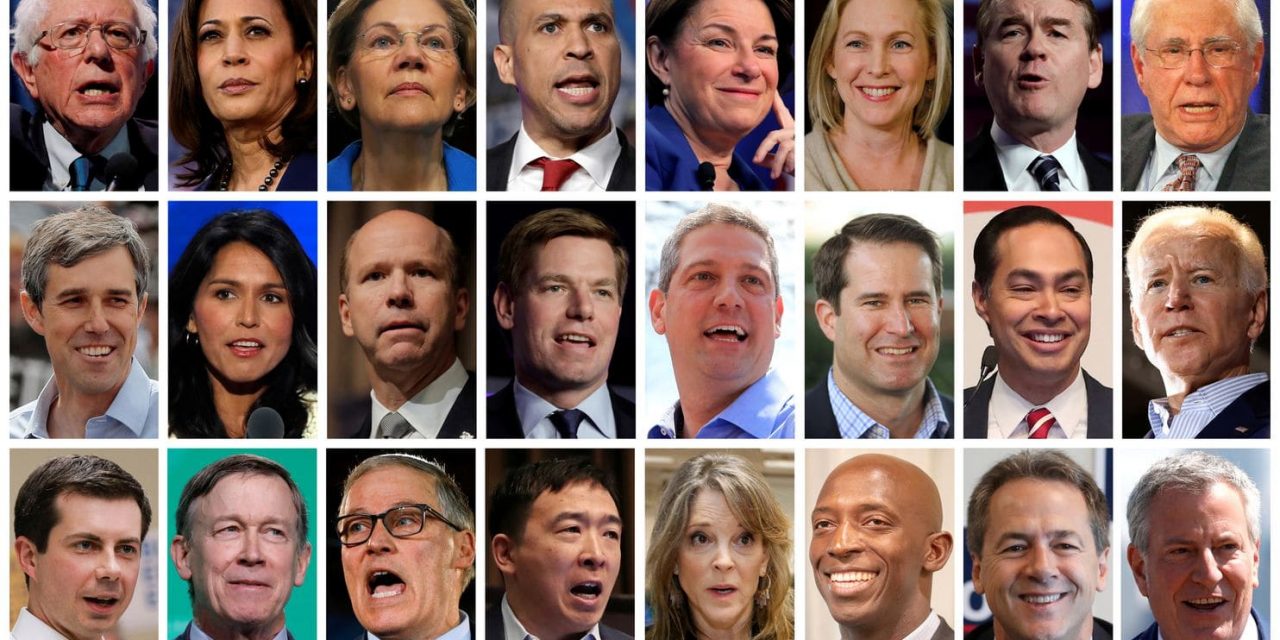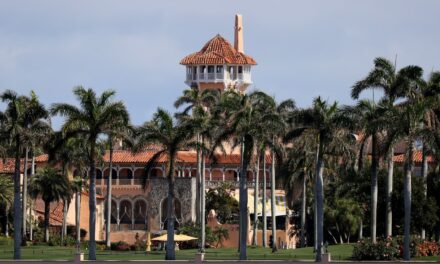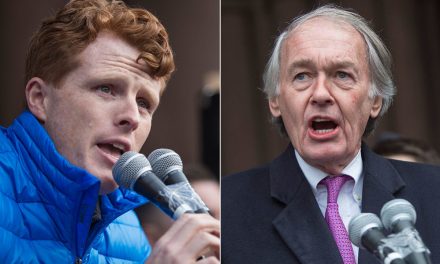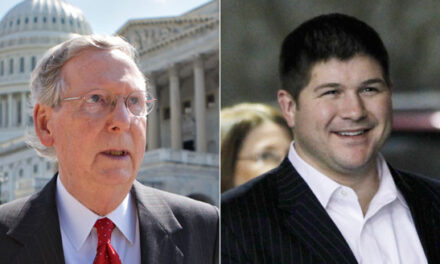Image Credits: Reuters.
Despite Charlie Sykes’ warnings, the current political cycle really does not have that much in common with 1972. For one thing, the Democratic Party is not currently the default majority party in the country and it is not coming apart at the seams or circling the drain. If anything, the Democrats are about dead-even with the Republicans and have the wind at their backs, as demographic trends (in both youth and ethnicity) heavily favor them to make advances in the near future. There are some ideological divides between the center and the left and between the older generations and the younger ones, but nothing as severe as what divided the Southern and Northern wings in 1972.
Having said that, I have been ringing a lot of the same alarm bells as Sykes about the Democrats putting their 2020 campaign in peril. The Democrats have basically substituted their farmer/labor alliance for an urban/suburban one, and it may work out as a nearly even trade in the raw numbers but it has exacerbated the problem of having most of their votes concentrated into small areas while also creating an Electoral College challenge (see 2016).
The flip side of the Republicans losing all their moderates is that the Democrats are now living in a bubble. What they see as obvious is not obvious in most congressional districts. What they see as virtuous is not necessarily seen as virtuous, patriotic or even sane in most congressional districts.
There are creating two problems for themselves. The first is a possible repeat of 2016, where they become perceived as so out of touch to the values and concerns of small-town and rural Americans that even a ridiculous man like Donald Trump seems highly preferable. The second is that they’re beginning to stress their suburban support with some of their policies, and the only way to offset rural losses is to do even better in the suburbs than they did four years ago. If Trump does as well or even better in his base areas as in 2016, and the Democrats do not improve on their suburban numbers, then the president will almost surely be reelected.
This is still not all that likely to happen in my view for the simple reason that Trump has lost support throughout his four years in office. He cannot depend on people to vote for him on the assumption that he’s going to lose anyway. He’s not a (ha, ha) joke or protest candidate anymore. He won’t get the considerable bloc of people who always vote against the incumbent regardless of party. He won’t automatically get the historically anti-Clinton suburban vote either, since there will be no Clinton on the ballot. More than this, Trump has definitely lost support among moderates, particularly well-educated folks from the professional classes. He’s going to do worse with Asians, Indians, Latinos, and blacks than he did four years ago. He’s not beginning this race at the starting line with his opponent. Despite the advantages of incumbency, he is starting from the rear.
Nixon did not suffer from most of these disadvantages in 1972. He would have been difficult to defeat no matter who the Democrats nominated or what they promised on the campaign trail. Trump is not looking at potentially winning 49 states. He’s looking at trying to win twice while losing the popular vote.
But he does have a strategy and the strategy is correctly calibrated for the task at hand. He must racialize the electorate to maximize his vote in heavily-white communities and tap a wedge in-between the urban and suburban Democrats so that the latter will defect in sufficient numbers for him to recover his losses. His problem is that efforts to maximize his white vote actually have the effect of pushing urban and suburban Democrats into a closer alliance. For this reason, he will fail unless the Democrats help ramp up his base numbers and depress their own.
This is where policies like free health care for undocumented people or abolishing all private health insurance are going to do damage. These things are not popular in general and are especially unpopular with the Democrats’ suburban base. A lot of the Democrats’ rhetoric on border issues is toxic not just in the sticks but also in the communities ringing our cities.
So, yes, the Democrats really could blow this election by running a non-strategic campaign based on abstract values against a campaign that is laser focused on just the voters it needs to win.
This isn’t an argument for changing values, but it is an argument for not being too stupid to beat a man like Donald Trump.







